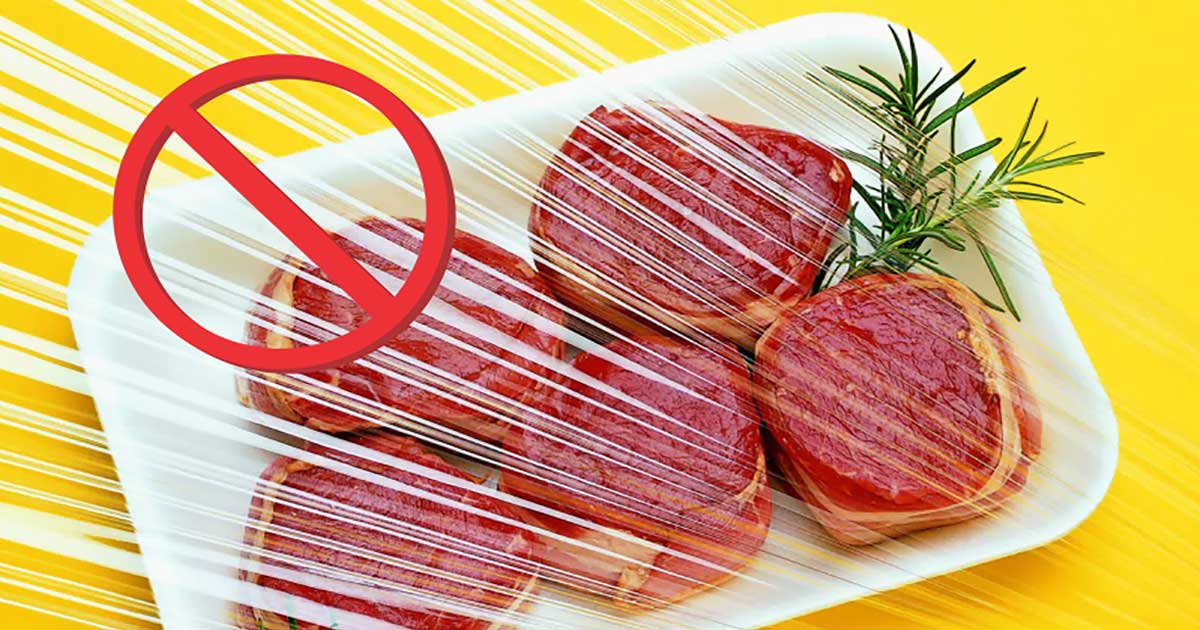You are what you eat. That is true enough, and modern society has become more and more obsessed with the way they prepare their food, and, subsequently, how our consumption of it can affect our health.
Let’s take a closer look at plastic – something which rose to fame during the 50s of the past century.
Since then, it’s mainly used as a food wrapper. When one considers its role in the kitchen, most have at least one roll at home.

It wasn’t clear whether one should be worried about just how safe plastic is. And surely there have been many debates and conflicting opinions on the subject. But recently, science may just tip the scales in favor of bad news: that there is indeed reason to worry.
Take one example: The Journal of Pediatrics had conducted a study which involved almost 3,000 children. There they stated that the phthalate chemicals present in plastic, seem to promote higher blood pressure levels in subjects ranging from six to nineteen-year-olds.
Through oxidative stress, these chemicals are capable of damaging the arterial walls. This dangerous process may lead to the direct damaging of heart cells.
Leonardo Trasande, the lead researcher from New York University School of Medicine, had this to say. He also stated: “We are aware that the phthalate chemicals reach the food through plastic gloves and wrappings.
But they are also present in cosmetics and PVC flooring. These chemicals may affect the health of the heart. It is advisable for adolescents and children to limit their exposure to them.”
Heat And Plastic Don’t Mix
There is some evidence which states that the heat causes the chemicals present in many plastic products, to reach the food and beverages through leakage. It’s horrifying to note that it’s precisely the heat that can cause a leakage of chemicals for up to 55%.
While we’re on the matter of chemical leaking, according to the National Institute of Environmental Health Science, one should try not to microwave the food in plastic dishes as well. Cancer research in the United Kingdom advises against allowing the cling wrap to touch the food while it is being heated.
Before 2006, plastic wrap in the USA was mainly made with PVC, which consists of vinyl chloride. This is an acknowledged cancer-causing agent in humans.
Granted, now most products are free of phthalate, and in its place, there is PVDC (polyvinylidene chloride) or LDPE (low-density polyethylene).
However, one should also note that the kinds of plastic wraps made with LDPE may have DEHA (diethylhexyl adipate). It may potentially disrupt endocrine function and it is associated with low fertility in men and breast cancer in women.
But what’s even more worth noting, is that there‘s no requirement to state the chemical use on the product boxes. So, to remain safe, it’s best not to buy them at all in the future.
At The End of The Day
So what to do when heating food in the microwave? Simple, just cover your food plate with another one, or you can even use a paper towel.
This is the sound advice of a professor of pharmacology at the University of Austin, USA, Andrea Gore. He should know what he is talking about since he has explored the chemicals’ influence on the reproductive functions.
He also adds that he only uses ceramic or glass when heating his food. Furthermore, if you must have cling wrap to cover the cooked meals in your fridge, at least make sure it’s removed before reheating.
Source Medium | Daily Mail | NCBI Image Source M
